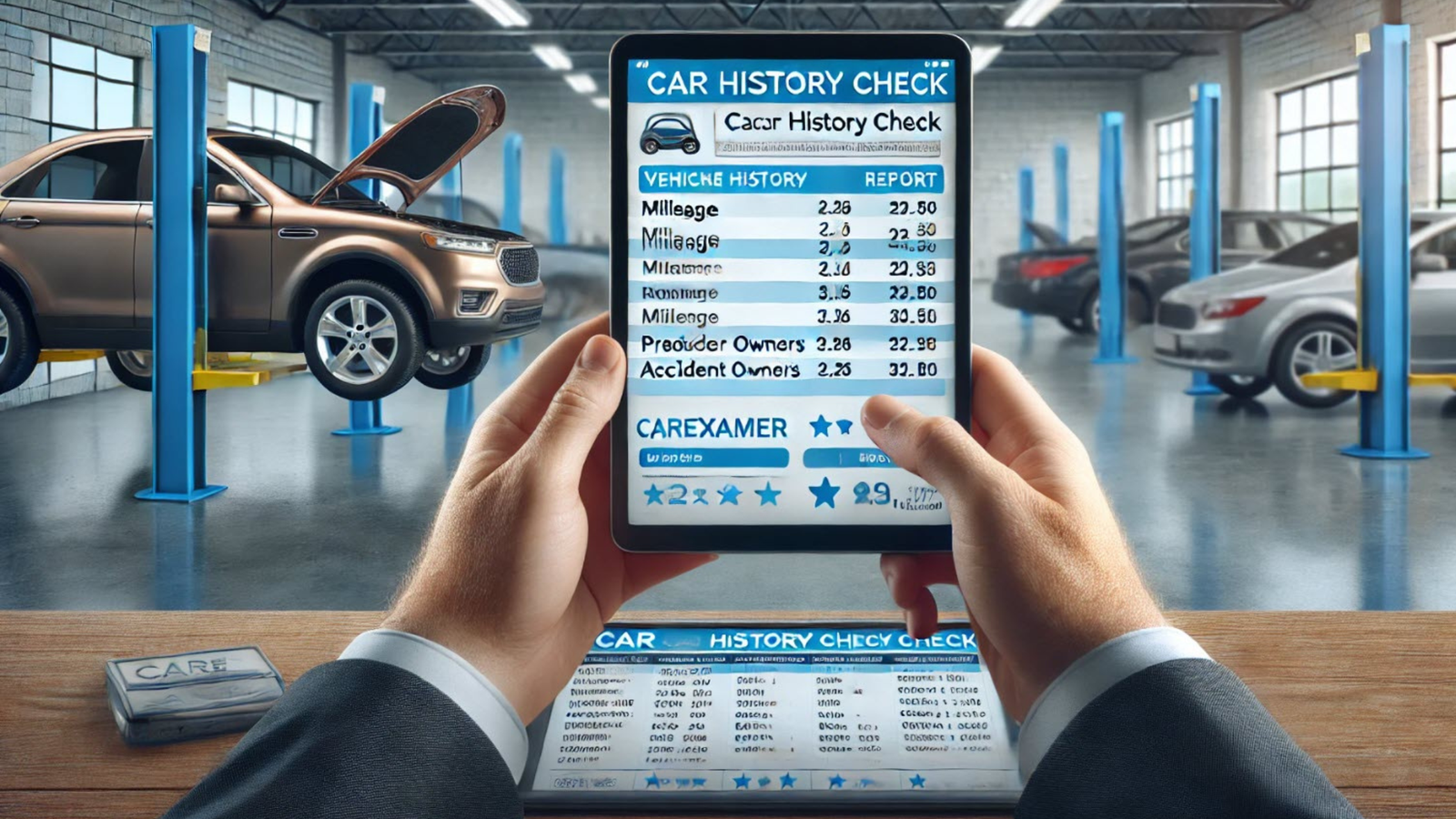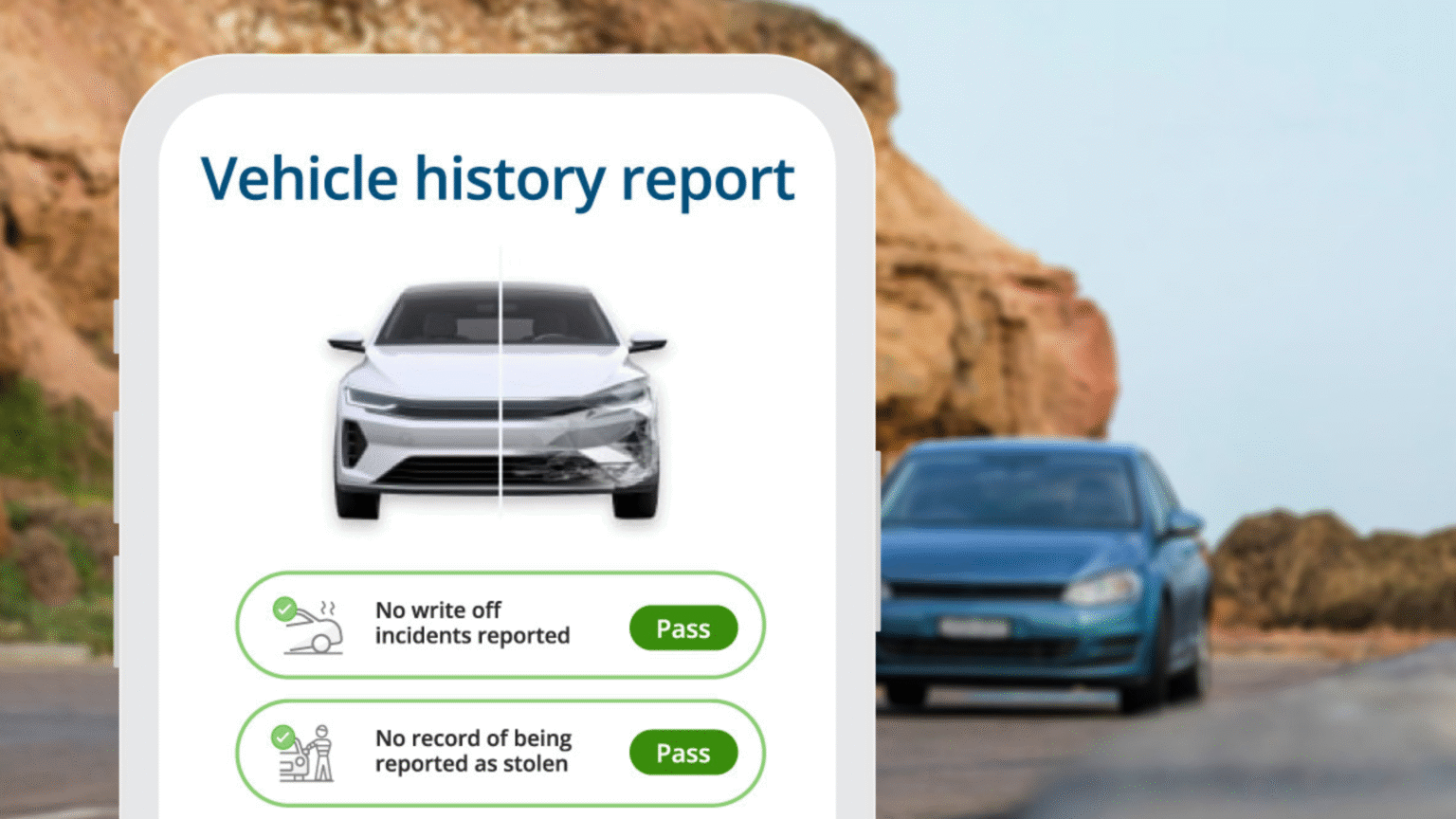When you’re in the market for a used car, one of the most powerful tools at your disposal is the Car History Report. It can protect you from hidden surprises like flood damage, odometer rollback, or an undisclosed salvage title. With vehicle fraud becoming more sophisticated, checking a Car History Report is not just wise—it’s essential.
In this blog, we’ll walk you through exactly what to check in a Car History Report, how to interpret the data, and how it can influence your purchasing decision. Whether you’re buying from a dealership or a private seller, understanding a vehicle’s past is crucial for making an informed choice.

What is a Car History Report?
A Car History Report is a detailed record of a vehicle’s past based on its VIN (Vehicle Identification Number). Services like Carfax, AutoCheck, and the National Motor Vehicle Title Information System (NMVTIS) collect and compile data from DMVs, auto auctions, insurance companies, repair shops, and more.
This document includes information on:
-
Ownership history
-
Title status
-
Accident records
-
Service history
-
Odometer readings
-
Recalls and defects
Before you even set foot on a dealer’s lot, make sure the Car History Report is part of your checklist.
1. Verify Ownership History
The ownership history gives you insights into how the vehicle was used:
-
Number of Owners: Fewer owners usually indicate a well-kept car.
-
Type of Use: Was it a personal vehicle, rental, or part of a fleet?
-
Ownership Duration: Frequent ownership changes can be a red flag.
Why it matters: A car with many short-term owners might have underlying issues that caused multiple resales. The Car History Report helps flag such patterns.
2. Check Title Information
This is one of the most critical components of a Car History Report. You should look for:
-
Clean Title: Indicates no major damage or issues.
-
Salvage Title: The car has been declared a total loss by an insurance company.
-
Flood or Fire Damage: Some titles may show if the vehicle has been damaged in a natural disaster.
-
Rebuilt or Reconstructed: Means the vehicle was previously salvaged but has been repaired.
A branded title affects not just the price but also the safety and insurability of the car. Always avoid cars with unclear title histories.
3. Accident History
A detailed Car History Report will mention:
-
Number of accidents
-
Severity of damage
-
Airbag deployment
-
Structural damage
You should also consider the location of the damage—front-end or frame damage could impact the car’s future performance.
Red flags:
-
Multiple accidents
-
Unreported repairs
-
Poor or inconsistent repair records
4. Odometer Readings
One of the most common forms of fraud is odometer rollback. The Car History Report provides mileage readings over time, and discrepancies in the mileage can indicate tampering.
Example:
If the report shows:
-
100,000 miles in Jan 2023
-
80,000 miles in Aug 2023
You’re looking at possible rollback fraud. Walk away.

5. Service and Maintenance Records
Although not always available, many reports now include service history if the vehicle was serviced at recognized centers. These records can include:
-
Oil changes
-
Brake replacements
-
Tire rotations
-
Engine diagnostics
Why it matters: Regular maintenance is a strong indicator of how well the previous owner cared for the car.
Pro tip: Cars with full maintenance records in their Car History Report are usually more reliable.
6. Recalls and Manufacturer Defects
Vehicle recalls are issued when a manufacturer identifies a defect that could affect safety or performance. A good Car History Report will list any:
-
Open recalls
-
Whether the repair was completed
-
Nature of the defect
Recalls can vary from minor issues to major ones like defective airbags or faulty brakes.
Always check if any open recalls exist and whether they’ve been addressed.
7. Lien and Loan Information
Before purchasing a used vehicle, ensure it doesn’t have an active lien (loan) against it. Some Car History Reports will reveal if the car is tied to a financing agreement or if the lien has been cleared.
Why it matters: Buying a car with a lien means the seller doesn’t legally own it—leading to serious legal complications for you.
8. Emissions and Inspection History
Depending on the state, a Car History Report may show results from smog tests and safety inspections. These can highlight:
-
Failed emissions tests
-
Mechanical issues
-
Timing of the last inspection
This data helps you assess both environmental compliance and the overall mechanical health of the vehicle.
9. Theft Record
A stolen car that’s been recovered may still have a mark on its Car History Report. Ensure the report shows a “clear theft record” status. If a car was reported stolen and never recovered, the VIN might be cloned onto another vehicle.
Avoid any vehicle with a suspicious theft history.
10. Auction and Fleet History
Cars sold at auction or used as rentals typically undergo more wear and tear. Your Car History Report might show if the vehicle:
-
Was used in a rental fleet
-
Was part of a lease program
-
Has passed through multiple auctions
While not deal breakers, these factors influence pricing and potential future reliability.
Real Example: Sample Car History Report Snapshot
| Feature | Information |
|---|---|
| Number of Owners | 2 |
| Title Status | Clean |
| Accident History | 1 Minor Rear-End (No Airbag Deployment) |
| Mileage Records | Consistent – No Rollback |
| Last Odometer Reading | 72,600 miles |
| Service History | Available – Regular Maintenance |
| Recall Status | One recall (completed) |
| Lien Status | Cleared |
| Theft Report | None |
How to Get a Car History Report
You can obtain a Car History Report through:
-
Carfax (www.carfax.com)
-
AutoCheck (www.autocheck.com)
-
NMVTIS (vehiclehistory.gov)
Most dealerships provide free access to the report. If you’re buying from a private seller, it’s worth paying the $25–$40 fee to get your own report.
Final Thoughts: Is a Car History Report Worth It?
Absolutely. Skipping the Car History Report could cost you thousands in hidden damages, legal troubles, or mechanical repairs. While the report doesn’t replace a professional inspection, it serves as your first line of defense against a bad deal.
Whether you’re spending $5,000 or $50,000 on a car, a Car History Report should be part of your due diligence process.
Estimated Cost of Reports from Major Providers
| Provider | Approximate Cost per Report |
|---|---|
| Carfax | $39.99 |
| AutoCheck | $24.99 |
| NMVTIS | Varies (Starts at $10) |

Conclusion
The next time you shop for a used vehicle, remember that the best decisions are backed by information. A Car History Report gives you that vital edge, helping you understand the car’s true story. From title history to mileage records, make sure to scrutinize every section thoroughly before sealing the deal.
It’s not just about getting a good price—it’s about getting peace of mind.
If you’d like a downloadable PDF, social media snippet, or featured image idea for this post, let me know!

